TV Shows About Ventriloquists
(This article was planned for Thursday. Inasmuch as I'll be driving tomorrow and have the article already written, I'll post it today. This concludes the article series about Ventriloquism in Literature.)
TV blatantly perpetuates the notion that all ventriloquists are loonies. Few fictional TV productions about ventriloquists cast them in a positive light. The tradition goes back to the early days of television.
The story is told in flashback after Wichita meets Gabbo in the restaurant where they used to meet. Gabbo denies that he is Gabbo. We learn later that he thinks he murdered Pepe and is in hiding. He has become blind, but the script neglects to explain the significance of his blindness. The show concludes with the bartender showing Wichita what Gabbo always leaves behind, a drawing of Pepe on the tablecloth.
Among other improbabilities in this story is a kindly booking agent who doesn't seem to care about money.
The other episode stars Cliff Robertson as yet another demented ventriloquist whose dummy interferes with his professional and personal life to the frustration of his agent. The vent tries to destroy the dummy but smashes the wrong one in the dark. The episode closes with the act on stage but with the faces of the vent and dummy switched. The dummy that looks like Cliff Robertson is a modified Insull figure.
Both episodes used the same dummy, a Revello Petee figure.
Ventriloquist Russo Lewis was the technical consultant for this episode. The dummy was played by Russo's “Brooklyn Birch” figure.
In this episode, the dummy is missing and then later found along with the club owner's body. Naturally, the shy ventriloquist is the main suspect. True to form, Jessica Fletcher reveals the real killer and proves the ventriloquist innocent at the end of the show.
The episode received high marks among reviewers, but to ventriloquists it is the same old story repeated yet another time.
This Bradbury story was broadcast earlier in 1959 on Alfred Hitchcock Presents. In that version, the ventriloquist is played by Claude Rains, and Charles Bronson is the detective.
This show is particularly bad, not only for its stereotypical portrayal of ventriloquists as weirdos, but also because neither of the actors seems to know how to be a ventriloquist. This is shameful since there are many talented ventriloquists who would have been willing and able to play the roles convincingly even given the improbable story line and weak script.
In one improbable sequence in the show, Dunham complains to the manager about having to follow another ventriloquist on the bill. It is far-fetched to suggest that a nightclub would actually employ one full-time ventriloquist. But two? Not likely.
By showing ventriloquism in an adult teaching role, one of the ways the art is often used in real life, this program puts ventriloquists in a more positive light. But the show's writers could not resist the opportunity to poke fun at the anachronism represented by a tall, macho cop talking to a doll sitting on his lap.
TV blatantly perpetuates the notion that all ventriloquists are loonies. Few fictional TV productions about ventriloquists cast them in a positive light. The tradition goes back to the early days of television.
The Rival Dummy
This Westinghouse Studio One production from 1949 was based on the 1928 Ben Hecht short story of the same name that inspired the movie, The Great Gabbo. A ventriloquist, Gabbo the Great, played by Paul Lukas, has a dummy named Pepe. He meets a pretty blonde performer named Wichita Jones, played by actress Anne Francis. The ventriloquist is a hit at the Palace vaudeville theater, but now insists on including Wichita in his act. Pepe objects and refuses to perform, and the act bombs. Throughout the story, Pepe speaks and moves without the assistance of Gabbo, implying that either Pepe is alive or Gabbo believes he is. Gabbo argues with Pepe over Wichita and destroys the dummy with an axe.The story is told in flashback after Wichita meets Gabbo in the restaurant where they used to meet. Gabbo denies that he is Gabbo. We learn later that he thinks he murdered Pepe and is in hiding. He has become blind, but the script neglects to explain the significance of his blindness. The show concludes with the bartender showing Wichita what Gabbo always leaves behind, a drawing of Pepe on the tablecloth.
Among other improbabilities in this story is a kindly booking agent who doesn't seem to care about money.
Superman
In a 1952 episode of the George Reeves Superman series, a ventriloquist's dummy is used to transmit the routes of armored cars, which are robbed and which then disappear. Syd Saylor, plays the ventriloquist in the Superman episode. (Saylor played Lullaby Joslin in the first episode of the Three Mesquiteers movie series in 1936. His portrayal of Joslin as a Mesquiteer was not, however, as a ventriloquist. Max Terhune added that element to the series beginning with the second episode.)The Twilight Zone
There were two Twilight Zone episodes about ventriloquists. One stars Jackie Cooper as a ventriloquist whose dummy, Caesar, talks him into a life of crime to improve their lot in life. When the ventriloquist gets arrested, the dummy, which can walk and talk without assistance, finds another ventriloquist.The other episode stars Cliff Robertson as yet another demented ventriloquist whose dummy interferes with his professional and personal life to the frustration of his agent. The vent tries to destroy the dummy but smashes the wrong one in the dark. The episode closes with the act on stage but with the faces of the vent and dummy switched. The dummy that looks like Cliff Robertson is a modified Insull figure.
Both episodes used the same dummy, a Revello Petee figure.
Alfred Hitchcock Presents
An episode in 1957 titled The Glass Eye stars William Shatner as a man who finds a glass eye among the possessions of his departed sister, Julia, played by Jessica Tandy in flashback. Julia falls in love with a ventriloquist. When she meets Max, played by Tom Conway, who is the person she believes she loves, it turns out Max is really the dummy, and the little guy, George, played by Billy Barty, is really the ventriloquist. During the encounter, Max loses a glass eye, which Julia keeps as a souveneir. Director Robert Stevens won an Emmy for this episode.Love American Style
This is a cute episode with a common theme. Paul Winchell and Shari Lewis play shy ventriloquists who let their dummies do all the talking. They fall in love, and a happy ending ensues.Surfside Six
A ventriloquist's dummy is kidnapped just as the ventriloquist is about to perform his first big-time gig. His former agent, angry about losing out on the big money, murders the new manager and kidnaps the dummy, hiding it in the theater basement with the new manager's body. He knows that the ventriloquist, who is a nut, cannot work with a duplicate dummy because its eye color is wrong. The former manager tries to extort dummy ransom from the ventriloquist. A detective, played by Troy Donohue, conducts a search for the dummy and turns up the dummy and the body. The bad guy is arrested and the show goes on.Ventriloquist Russo Lewis was the technical consultant for this episode. The dummy was played by Russo's “Brooklyn Birch” figure.
The Dick Van Dyke Show
Paul Winchell plays a TV kid show ventriloquist who wants to hire comedy writer Rob Petrie (Van Dyke), who thinks he is about to be fired from his job from the Alan Brady variety show. The kid show stars a puppet named Jellybean the Snail who infuriates Rob by continuously hitting him on the head.The Lucy Show
Lucy visits the home of Paul Winchell who plays himself. Jerry Mahoney and Knucklehead Smiff appear as themselves, too, as dummies who talk and wave their arms around even though they are positioned across the room from Winchell.Barney Miller
A crazy gunman makes Barney and his crew serve time in their own jail cell with a nutso ventriloquist and a foul-mouthed dummy.Soap
Soap, a weekly comedy sitcom about two loony families, featured among its repertory company Jay Johnson as a ventriloquist whose dummy insults everyone. Chuck, the ventriloquist, thinks Bob, the dummy, is a real person. Most of the other characters treat Bob as a separate personality, too. This role is not as demeaning to ventriloquists as other portrayals because all the characters in that program are wackos. A sane ventriloquist would have been out of place.Mrs. Columbo
In an episode of this lady detective series, Jay Johnson of Soap fame plays a demented ventriloquist, whose two dummies are engaged in a bitter rivalry, resulting in the murder of the puppet maker who built the dummies. In this one, the killer turns out to be the ventriloquist, but his dummy made him do it.Murder She Wrote
In an episode titled Where Have You Gone, Billy Boy, Grant Shaud, better known as Miles on Murphy Brown, plays a successful but shy young nightclub ventriloquist who depends heavily on his dummy to express himself. The show is technically good because although Shaud did not do his own ventriloquism, he was coached to make it look as if he was speaking ventriloquially, including small lip quivers common to some ventriloquists. Shaud gives it away in one closeup scene, however, when he allows the dummy to speak clearly while Shaud's lips are tightly closed.In this episode, the dummy is missing and then later found along with the club owner's body. Naturally, the shy ventriloquist is the main suspect. True to form, Jessica Fletcher reveals the real killer and proves the ventriloquist innocent at the end of the show.
L.A. Law
Ronn Lucas, a professional ventriloquist, plays a shy ventriloquist who gets into trouble with the police over an alleged assault. He is unable to speak to anyone on his own, letting his dummy do all the talking. This malady confuses the police who confiscate the dummy and lock up the ventriloquist. It all ends up in court and we are expected to feel sorry for the ventriloquist because of his acute shyness.Ray Bradbury Theater
A 1988 episode titled And So Died Riabouchinska is about a ventriloquist's dummy that won't keep quiet even when his ventriloquist wants him to. The dummy spills the beans about a murder to a detective investigating the crime. The dummy was created in the image of a ballerina whom the ventriloquist had once loved. The ballerina disappeared mysteriously years before. The murdered man knew the truth about the ballerina and the dummy. The ventriloquist had murdered the ballerina and created the dummy in her image. Alan Bates plays the ventriloquist.The episode received high marks among reviewers, but to ventriloquists it is the same old story repeated yet another time.
This Bradbury story was broadcast earlier in 1959 on Alfred Hitchcock Presents. In that version, the ventriloquist is played by Claude Rains, and Charles Bronson is the detective.
Tales From The Crypt
An episode features Bobcat Goldthwait as an aspiring ventriloquist and Don Rickles as his hero from whom Goldthwait seeks advice. The punch line of the story is that Rickles is not a ventriloquist at all. His dummy is really his conjoined twin, a mutant dwarf attached to Rickles where his hand ought to be. An amputation was bound to happen. This is probably the most bizarre and disgusting of all the vent-related stories. What else should we expect from the Crypt Keeper?When A Stranger Calls Back
This TV drama, released in 1993, was a sequel to the 1979 movie When a Stranger Calls. It involves a teenaged baby sitter who is stalked by a nut while she is babysitting. The incident naturally affects her emotional stability, and she keeps her doors locked after that. Years later, when she is a college student, the stalker seems to be back. She gets help from her guidance counselor and a detective. They suspect a disturbed ventriloquist. Why are we not surprised?Night Court
In an episode titled The Next Voice You Hear, Judge Stone has some ventriloquists in his courtroom. He is distracted from the case when he receives a letter from his mother, who abandoned him when he was a child. The letter was mailed fifteen years earlier, though, and Stone's mother is now dead. Most of the ventriloquists are simply actors waving Juro dolls around and yelling a lot. Two of them, however, are played by real ventriloquists Ronn Lucas and Rickie Layne. Lucas has no dummy, speaks only without moving his lips, and refuses to do otherwise until he finds an appropriate character. When he meets Bull, the court’s baliff, he is fascinated by Bull’s character and has a dummy built to look just like Bull. Layne’s dummy, played by Velvel with a mustache, wants to disassociate himself with Layne and find another ventriloquist because of Layne’s moving lips. Velvel commits suicide by jumping off the ledge outside of Judge Stone’s office. The episode never really explains why the courtroom is full of ventriloquists in the first place.Nash Bridges
A wimpy ventriloquist calls the cops because his dummy has been receiving threatening calls from the dummy of a lady ventriloquist. Wait, it gets better. The two ventriloquists had been romantically involved. Eventually someone steals and hides the dummy's head. It turns out to be the work of the male ventriloquist's son in a bid for attention. Sorry to spoil the ending.This show is particularly bad, not only for its stereotypical portrayal of ventriloquists as weirdos, but also because neither of the actors seems to know how to be a ventriloquist. This is shameful since there are many talented ventriloquists who would have been willing and able to play the roles convincingly even given the improbable story line and weak script.
She Spies
This TV series, which failed on prime-time network TV and is seen now in syndication, is about three beautiful ex-convict woman who have been released from prison to rehabilitate themselves by spying for the government. The episode in question has a crooked nightclub owner, some government employees gone bad, and other goons. One of the club's performers, played by Jeff Dunham, is an Elvis-impersonator ventriloquist with an Elvis-impersonator dummy. Dunham plays a bit of a dimwit with an unbelievably exaggerated southern accent, thus perpetuating the stereotype of all ventriloquists as morons.In one improbable sequence in the show, Dunham complains to the manager about having to follow another ventriloquist on the bill. It is far-fetched to suggest that a nightclub would actually employ one full-time ventriloquist. But two? Not likely.
Everybody Loves Raymond
In an episode of this sitcom, Ray's brother Robert uses a ventriloquist dummy to teach driver's school for traffic offenders. He practices his class on his family who are not particularly cooperative and who make fun of his dummy. Actor Brad Garrett, who plays Robert, is clearly not a ventriloquist and does not try to conceal his lip movement, but his manipulation, character voice and separation are better than you'd expect from a novice.By showing ventriloquism in an adult teaching role, one of the ways the art is often used in real life, this program puts ventriloquists in a more positive light. But the show's writers could not resist the opportunity to poke fun at the anachronism represented by a tall, macho cop talking to a doll sitting on his lap.



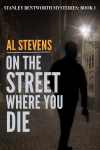
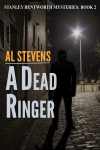
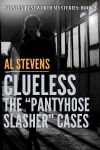
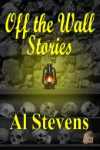

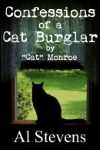

0 Comments:
Post a Comment
Subscribe to Post Comments [Atom]
<< Home